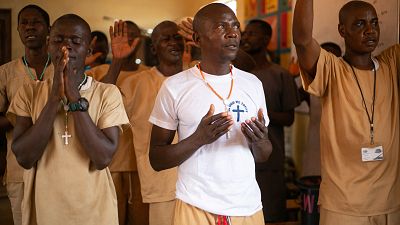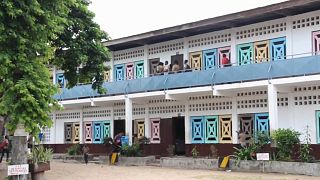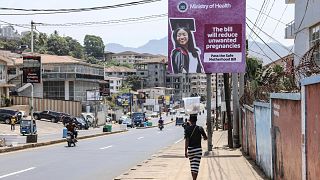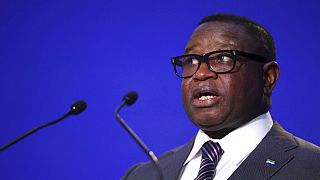Sierra Leone
The Sierra Leonean government has decided to submit to Parliament the abolition of the death penalty, which is still on the statute books despite a de facto moratorium on executions, Deputy Justice Minister Umaru Napoleon Koroma said Wednesday.
The former British colony in West Africa has been criticized in recent years by human rights advocates for not abolishing the death penalty in law, although the last executions were carried out more than 20 years ago and sentences are usually commuted to life imprisonment.
"Once the legislation is submitted to parliament and approved, the history of the death penalty will be over" in this poor country of some 7.5 million people, Koroma told AFP.
The government of President Julius Maada Bio has "taken the ultimate decision in (its) quest to uphold the basic human rights of Sierra Leoneans," the deputy minister added.
It was not immediately clear when the bill would be presented to Parliament, but the government reported its decision to the U.N. Human Rights Council on Wednesday, Koroma said.
- Shot on a beach -
Sierra Leone's 1991 constitution provides for the death penalty for aggravated robbery, murder, treason and mutiny. In 2020, 39 death sentences were handed down in the country, nearly double the 21 in 2019, according to Amnesty International.
But the last execution was in 1998, when 24 officers were shot on a beach near Freetown for an attempted coup.
Despite its diamond-rich soil, Sierra Leone is one of the poorest countries in the world. Its economy, plagued by corruption, was devastated by a horrific civil war (1991-2002) that left some 120,000 dead.
In 2004, the Truth and Reconciliation Commission set up after the civil war concluded that the conflict had "resulted in the degradation of human life and dignity" and that successive governments had "abused the death penalty to eliminate political opponents. She therefore called on the state to renounce the death penalty, to "set an example".
But in the years that followed, the moratorium on executions was undermined by the rise of gang violence and public pressure for harsher penalties. Leaders, for their part, have raised the possibility of using the death penalty to try to curb the violence.
The European Union's ambassador to Sierra Leone, Tom Vens, on Wednesday welcomed the decision of President Bio, elected in 2018, to propose to Parliament to finally remove the death penalty from the law.
"We will continue our partnership with you to promote a progressive human rights agenda," the EU representative, who has made opposition to the death penalty in all circumstances one of the principles of his diplomacy, said on Twitter.
- Declining in Africa -
According to Amnesty International, at the end of 2020, there were 144 countries that were de jure or de facto abolitionist, i.e. that had not carried out executions in the last ten years. That is two more than in 2019 and nearly three quarters of the states in the world.
China, Iran, Egypt, Iraq and Saudi Arabia are the countries that use the death penalty the most. Amnesty estimates that thousands of people would have been executed in China in 2020, but stresses that the information is a state secret. Outside China, at least 483 people have been executed worldwide, it says.
Death sentences in sub-Saharan Africa fell by 6 percent last year, from 325 in 2019 to 305 in 2020, the NGO said. Executions in the same region dropped by 36%, from 25 in 2019 to 16 last year.












Go to video
Pics of the day: March 25, 2025
Go to video
Faure Gnassingbé's party triumphs in Togo's senatorial vote
00:59
Zimbabwe opposition backs move to extend president's mandate
Go to video
23 Congolese soldiers face death penalty or prison for alleged desertion or crimes
01:00
Zimbabwe abolishes death penalty: Amnesty International hails "Historic Moment"
00:56
DRC: Joseph Kabila and Moise Katumbi issue statement criticising Félix Tshisekedi